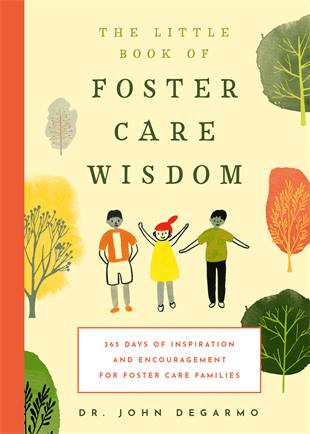
Yes, foster care needs reform.
It always has, and it always will. As the world continues to change, foster care will need to change with it.
I often tell foster parents that I work with that there are 50 different states in the United States, and each state does foster care a little bit differently. Each state has its own specific policies and procedures, rules and regulations. This means 50 different ways of doing foster care. In addition, each agency within each state may also have its own individual agency policies and procedures. As a result, there are so many different ways of doing foster care in the United States, and no one agency or no one state does it perfectly. To be sure, some states and some agencies do it better than others, yet each can be improved in some fashion.
Perhaps this is one of the reasons that celebrity actress and foster/adoptive mother Jen Lilley were in Washington D.C., in the midst of Covid, meeting with legislators on both sides of the political aisle, in an attempt to bring reform to foster care. In truth, reform needs to happen in many areas in foster care.
In regards to rules and policies, the past two years saw many of the rules "go out the window", so to speak in regards to all things foster care. Covid has changed the rules in so many areas of our lives, and in society. So many of these changes were ones we may never have expected, never have anticipated 10 years ago, 5 years ago, or even 1 year ago. Changes no one of foresaw, or even imagined.
During this time, I heard over and over again from foster parents across the nation that they are in desperate need of help. Foster parents are often saying to me, “I have to take care of my own job. Yet, I now have to also be the teacher to the child placed in my home, and I’m not a teacher. I also have to be their professional therapist, and I’m not trained in this area. What do I do?” For so many children in foster care, they are not getting their professional counseling sessions, they’re not getting their drug counseling, they’re not getting visitations with their own birth parents in a face to face meetings, meetings that are detrimental not only to the reunification process, but to that of issues of attachment, trust, the family unit, and sometimes of mental health.
Join the thousands who receive Dr. DeGarmo’s FREE foster care newsletter. Simply fill out the form below.
The anxiety levels of so many children in care right now is off the charts, for so many reasons since Covid, and foster parents are struggling with that. Indeed, the anxieties from their own personal trauma may be so severe to the child that it feels as if their entire world is falling apart. Covid only exasperated this, and triggered deeper issues of anxiety, as well. Issues from anxiety can manifest themselves in a number of ways. Professional therapy and counseling is essential for the well-being of the child.
Foster parents feel like they are not getting support right now. Foster parents also feel like they are not getting the resources right now, either. And right now, caseworkers are scrambling to try to figure out how to get the foster parents the support that they need. There is the growing concern that we are going to see foster parents quit because they are so filled with anxiety they are facing and feeling.
Foster families always rely on community support, but they need it more than ever now. Foster parents need a number of training hours and CEUs each year, in order to remain licensed as a foster care home, with each state setting the number of hours required each year. During the past few years with Covid, foster parents have found it increasingly difficult in regards to attaining their required training hours. Foster parents also need more online support services, including online orientations, social media support groups, and more virtual training opportunities.
Today’s caseworkers feel overworked, overwhelmed, under-resourced, and they certainly are underpaid. Like so many others, caseworkers are now working from home, and are unable to visit their foster parents, and many times not be able to provide the assistance and resources they need, including face to face interactions that may be necessary on occasion. Agencies need to ensure that their caseworkers are safe and not at risk. In addition, our caseworkers need to be given more time, more funding, more resources, and more understanding from the public, from the courts, and from foster parents..
As the challenges the past two years have led to many agencies being understaffed, there have been delays in new foster parents being trained and licensed, birth parents have met difficulties in attaining the requirements for reunification, and the adoption process for those children who are unable to be reunified has slowed, as well. In the end, many times these policies and regulations foster families, case workers, and children in care from living as “normal” a lifestyle, leading to frustration on many levels. There needs to be less paperwork, less “red tape” and more action on behalf of the child.
Reformed and always reforming. Let us all embrace this philosophy as a wonderful challenge to make the foster care system a better one for all, now and in the future.
-Dr. John
Want MORE? Order your signed copy of the popular book The Little Book of Foster Care Wisdom: 365 Days of Inspiration and Encouragement for Foster Care Families. Order your special copy HERE.



 RSS Feed
RSS Feed